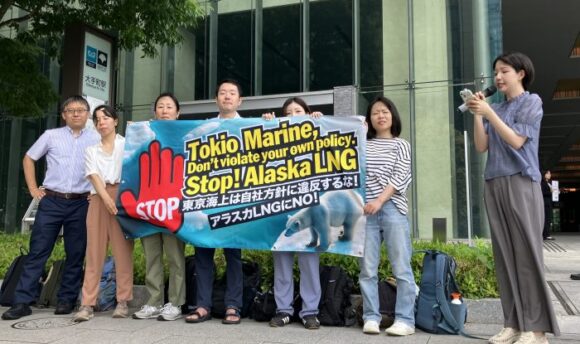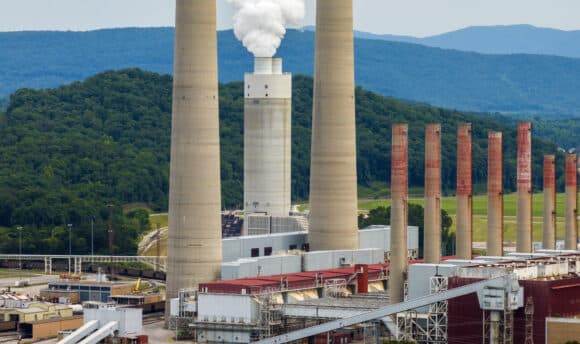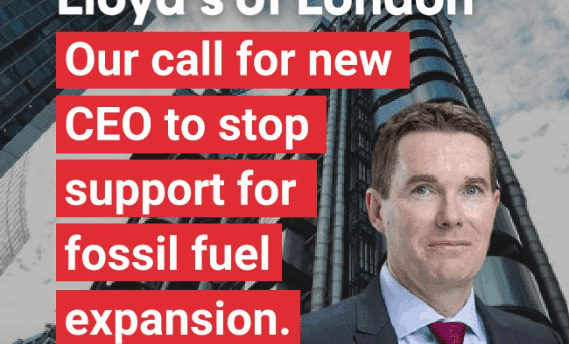This week has been an incredible global week of action for the Insure Our Future campaign, with thousands of people taking part in over 100 actions across 31 countries in 5 continents, including over 100,000 people taking action online. In-person actions include protests in Japan, South Korea, Nigeria, Uganda, Indonesia, UK, USA, Philippines, Pakistan, Tanzania, Bangladesh, Egypt, France, Germany, Switzerland, Columbia, and Peru.
Activists found creative ways to raise their voices and make their message clear. A mother-led group, Mothers Rise Up, organised a theatrical dance flashmob outside Lloyd’s of London; an arts education session in Egypt; performers and scientists from Extinction Rebellion UK dressed as corporate rats to engage with insurers in London pubs; Campax and Collectif BreakFree organised dripping oil derricks at a protest outside Zurich’s HQ in Switzerland; a cycle rally to the Matarbari coal plant in Bangladesh; Extinction Rebellion UK organised 800 people holding hands around the Lloyd’s of London building in a sign of solidarity; a youth march in Nigeria; community leaders from LNG-affected regions in the US converging on New York for a march; a youth dance performance and march in Uganda; community training sessions; street rallies and more.
All groups have been united under the same demands for the insurance industry to:
- Stop enabling fossil fuels: Immediately cease insuring new and expanded coal, oil, and gas projects and the companies developing them.
- Respect human rights: Immediately adopt robust due diligence mechanisms to ensure clients respect all human rights, including obtaining Free, Prior, and Informed Consent (FPIC) of impacted Indigenous Peoples and communities.
- Support a just transition: Play an active role in the just transition by increasing support to renewable projects for communities most impacted by climate change and those facing an energy-access crisis.
"This week has sent an extremely powerful message to the insurance industry that they must immediately introduce exclusion policies on fossil fuels now because later is too late. So many communities and groups – including those from the frontline of the climate crisis – have taken action because they realise that the insurance industry is a key strategic lever for change. Now’s the time for insurance companies to choose communities over fossil fuel profit."
Groups have also been calling for insurers to publicly rule out involvement with climate-wrecking projects, such as the East African Crude Oil Pipeline. No fossil fuel insurer yet has policies that align with a path to stay under 1.5°C warming, the global target set to limit the deadliest effects of climate change. Ongoing insurance campaigning has rendered new coal plants almost uninsurable and halted many from proceeding. Thanks to campaigners and activists raising their voices, 45 companies have committed to end or restrict insurance on coal projects, and 26 companies have introduced policies to restrict insurance on tar sands projects. Now, the focus turns to oil and gas, with 18 companies committing to end or restrict insurance for new projects.
The power of collective action is clear and the insurance industry has had no choice but to hear the demands of activists and campaigners pushing for a healthy, safe future for all. Already the week has made a positive impact in the industry as the CEO of Zurich, a major insurer and one of the global targets of the week, has requested a meeting with campaigners following the week of action, and Probitas, an insurer who was the focus of a peaceful office occupation in London by Christian Climate Action, has since confirmed to campaigners that they have ruled out insuring both the East African Crude Oil Pipeline and the West Cumbria Mine.
“We want to congratulate Probitas on choosing not to insure the East African Crude Oil Pipeline. This pipeline, if it goes ahead, will devastate local habitats, and create highly dangerous levels of carbon pollution. We urge all other insurers to take the same position and announce that they will not insure the fossil fuel industry’s plan to extract more dirty fuel than can ever be safely burnt.”
For photos and videos, please visit this folder.
See our recap video below:



